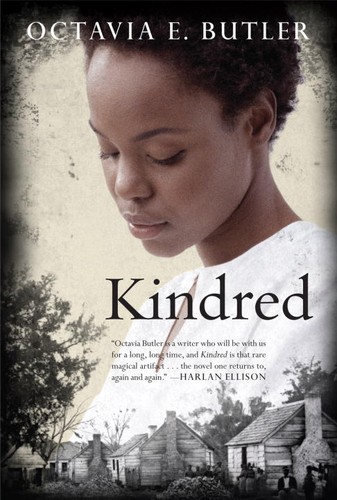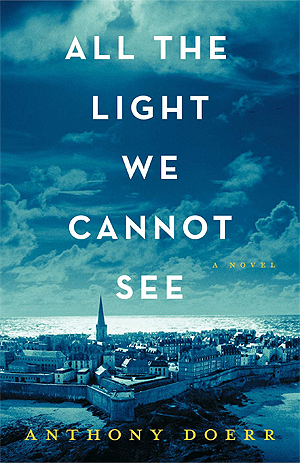Dan Keck rated Harry Potter and the Chamber of Secrets: 3 stars

Harry Potter and the Chamber of Secrets by J.K. Rowling (Harry Potter, #2)
Harry Potter and the Chamber of Secrets is a fantasy novel written by British author J. K. Rowling and the …
In my filing system, three stars is a good book.
This link opens in a pop-up window

Harry Potter and the Chamber of Secrets is a fantasy novel written by British author J. K. Rowling and the …

The third part of J.R.R. Tolkien's epic adventure The Lord of The Rings.
The armies of the Dark Lord …

The third part of J.R.R. Tolkien's epic adventure The Lord of The Rings.
The armies of the Dark Lord …

The first science fiction written by a black woman, Kindred has become a cornerstone of black American literature. This combination …

The first science fiction written by a black woman, Kindred has become a cornerstone of black American literature. This combination …
Content warning Spoiler
Gollum and Sam are more interesting characters than I remembered. I wonder what diagnoses a psychologist would come up with for Gollum. But my favorite part is when Gimli breaks out into praise for the caverns at Helm’s Deep, so eloquently that Legolas is willing to go back and revisit them with Gimli, and I’m ready to go see them too.

From the highly acclaimed, multiple award-winning Anthony Doerr, a stunningly ambitious and beautiful novel about a blind French girl and …
Shew shows how technoableism, the goal of using technology to "fix" disabled people is intertwined with the flawed Medical Model of disability and with eugenics. She deftly interweaves her own personal experience with the overall cause of disability justice.
Her chapters on amputees and autistic folks are especially detailed and enlightening.
Although I was already familiar with the Medical and Social Models of disability, I think this book could serve as a good intro to these ideas, for a reader who doesn't mind wading through a bit of jargon and heady discussion. I wouldn't recommend the book to my right-wing friends due to the author's left-wing orientation being on full display. But for a reader already in political agreement with the author, this book could be a good way to argue for the rights of disabled people, and for caution when dealing with those who frame groups of …
Shew shows how technoableism, the goal of using technology to "fix" disabled people is intertwined with the flawed Medical Model of disability and with eugenics. She deftly interweaves her own personal experience with the overall cause of disability justice.
Her chapters on amputees and autistic folks are especially detailed and enlightening.
Although I was already familiar with the Medical and Social Models of disability, I think this book could serve as a good intro to these ideas, for a reader who doesn't mind wading through a bit of jargon and heady discussion. I wouldn't recommend the book to my right-wing friends due to the author's left-wing orientation being on full display. But for a reader already in political agreement with the author, this book could be a good way to argue for the rights of disabled people, and for caution when dealing with those who frame groups of people as a problem, and then want to engineer and sell a solution.
Matt Alt's book is part love letter to Japan, part argument that Japan has had an outsized influence on the world's pop culture. Easy, fun, light reading, aside from the serious political turn in the last chapter.
Matt Alt's book is part love letter to Japan, part argument that Japan has had an outsized influence on the world's pop culture. Easy, fun, light reading, aside from the serious political turn in the last chapter.
This book feels like it is 80-90% about horrible ways that autistic people have suffered throughout history--including getting killed in ancient times and Nazi Germany, or getting institutionalized in the United States for being "feeble-minded," which really meant not conforming to the behavior that polite society expected. Near the end of the book, there start to be some positive stories, and some autistic people start to get a voice.
This book feels like it is 80-90% about horrible ways that autistic people have suffered throughout history--including getting killed in ancient times and Nazi Germany, or getting institutionalized in the United States for being "feeble-minded," which really meant not conforming to the behavior that polite society expected. Near the end of the book, there start to be some positive stories, and some autistic people start to get a voice.
This is my first return to the Lord of the Rings in over 20 years. These characters are so iconic, and it's a pleasure to spend time with them again.
What stands out to me this time is: the best part of the book is the beginning in the Shire. The hobbits are more fun and colorful than the elves and heroes we meet later. When I was a kid, I just wanted to get past the boring Shire stuff to the exciting parts. As an adult I appreciate the glimpses at human nature through the hobbits of Tolkien who aren't on epic quests.
This is my first return to the Lord of the Rings in over 20 years. These characters are so iconic, and it's a pleasure to spend time with them again.
What stands out to me this time is: the best part of the book is the beginning in the Shire. The hobbits are more fun and colorful than the elves and heroes we meet later. When I was a kid, I just wanted to get past the boring Shire stuff to the exciting parts. As an adult I appreciate the glimpses at human nature through the hobbits of Tolkien who aren't on epic quests.
I enjoyed reading about this Bengali couple adjusting to life in late-20th century suburban United States. The details about day-to-day life and their family interactions are great. Less entertaining are their son’s Gogol’s misadventures among Gilmore Girls-ish northeastern Ivy Leaguers. But the book is very well written and has a perspective worth discovering.
There's a chapter where Boyd lays out his disagreements with the theologian Karl Barth. This chapter is hard to understand and gets into confusing philosophical terms. It sticks out like a sore thumb in this book that is otherwise clear and written for a lay audience.
I enjoyed his personal story of wrestling with scripture, and his central idea of comparing the Bible to Jesus's crucifixtion.
There's a chapter where Boyd lays out his disagreements with the theologian Karl Barth. This chapter is hard to understand and gets into confusing philosophical terms. It sticks out like a sore thumb in this book that is otherwise clear and written for a lay audience.
I enjoyed his personal story of wrestling with scripture, and his central idea of comparing the Bible to Jesus's crucifixtion.